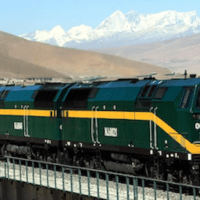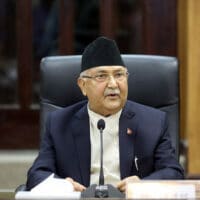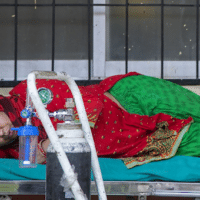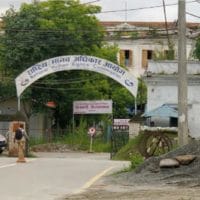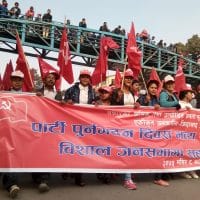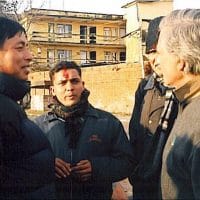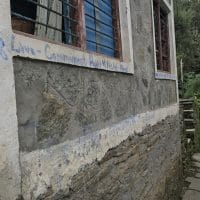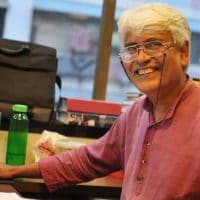-
Harry Magdoff Memorial Library: The Hidden Library of Marx, Lenin, and Mao in Kathmandu
In the basement of Helping Hands Hospital in Kathmandu, Nepal, there is a meeting room. Its left and right sides are lined with stacks of large books, some with torn covers. These are rare books about Marx, Lenin, Stalin, and others. They sit like prisoners, yearning for readers to set them free. The place is known as Harry Magdoff Memorial Library.
-
IMF says to Nepal Rastra Bank: “COVID-19 related support measures in the financial sector should however be gradually unwound, and the remaining ones should be targeted and time bound
The International Monetary Fund (IMF) has expressed dissatisfaction over the role played by Nepal Rastra Bank to ensure stability of Nepal’s banking sector.
-
Nepal’s largest hydropower station starts operation
With the completion and operation of the Upper Tamakoshi hydroelectric power station, Nepal has not only resolved a long-standing problem of intermittent power shortages, but also realized the transformation from an electricity importer to an exporter.
-
Tibet railway in focus as China vows change for landlocked Nepal
In May 2017, Nepal joined the BRI with a hope of obtaining long-term benefits through a myriad of projects. The line has already reached Xigaze (or Shigatse) in Tibet. In July 2020 the next secton of line in Tibet from Xigaze to was still in the planning stage, although China had reportedly commenced surveying work.
-
Oli’s virus ‘situation under control’ remark meets with criticism
Crisis continues to deepen with over 8,000 new cases and 53 deaths. Many from Oli’s orbit and over two dozen lawmakers test positive ahead of May 10 House session.
-
Doctors in Nepal warn people could die on streets amid Covid crisis
Nepal reported 9,070 new confirmed cases on Thursday, compared to 298 a month ago.
-
Police killed CPN leader Paudel in cold blood: NHRC
The NHRC has recommended that the government should investigate officers issuing orders to police officials who acted against Paudel and bring them to book.
-
Biplav’s Communist Party of Nepal on the move
A five-year-old revolutionary movement in Nepal brings together program and commitment in a way that powerfully prefigures communist society.
-
Meeting Comrade Pasang, Nepal’s Vice President: Dispatch by a far-flung Bolivarian
How can politics be a way of pursuing the same goals once pursued in war? And through what form of politics? The career of Pasang, from revolutionary military commander to Vice President of Nepal, raises a host of questions about the transition from war to politics and the conditions of victory in each sphere.
-
In the wake of Nepal’s incomplete revolution
In the aftermath of Nepal’s near revolution, diverse Maoist leaders are attempting to regroup and move forward again.
-
Bernard D’Mello on revolution in the global south
From the time of independence in 1947, India has had the resources and the potential to achieve a high level of human development—yet the great majority of the country’s people have remained desperately poor.


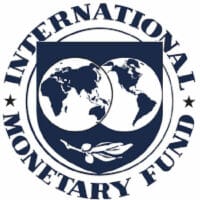
![The first generator unit at the Upper Tamakoshi Hydroelectric Power Station, the largest of its kind in Nepal, begins operation on July 5, 2021. [Photo/sasac.gov.cn]](https://mronline.org/wp-content/uploads/2022/01/nepal-hydo-1626764408925065356-200x200.jpeg)
